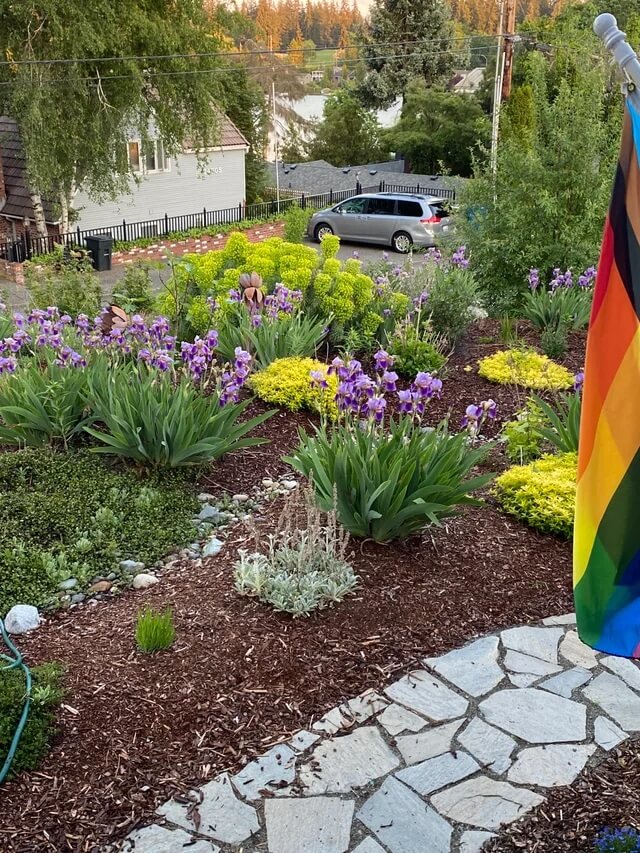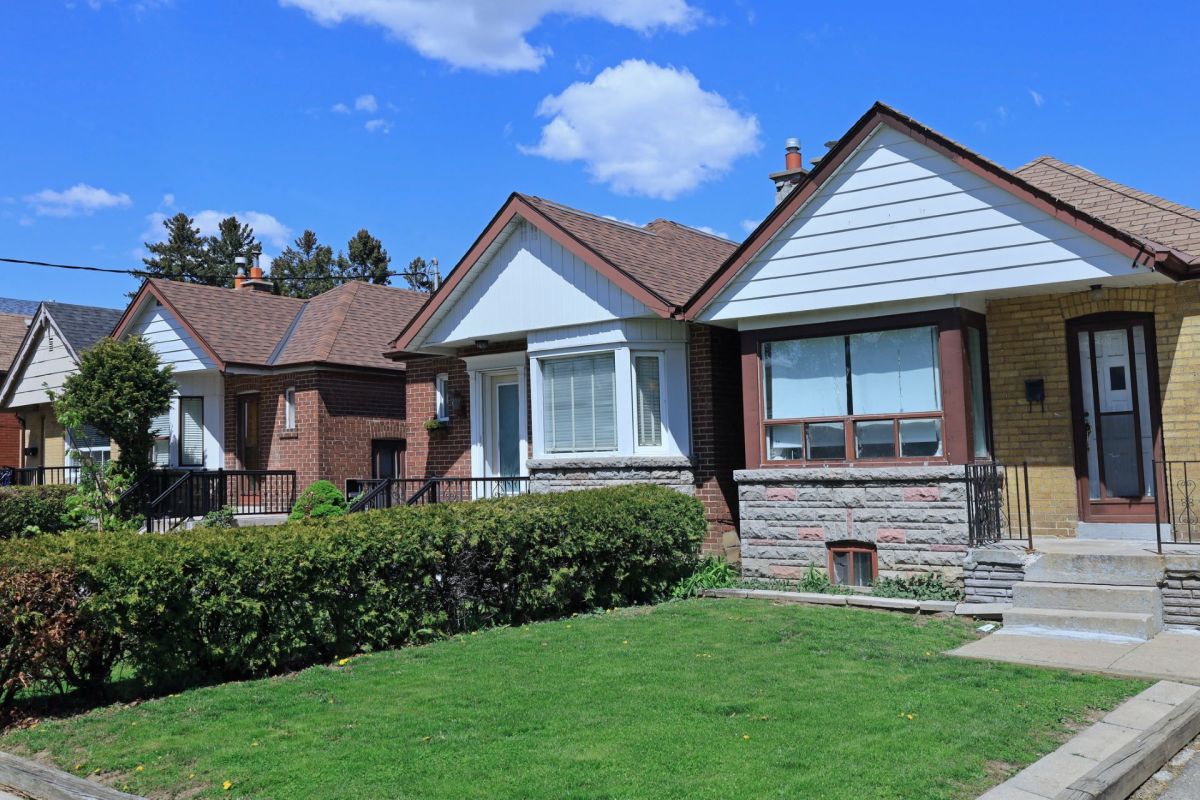The anti-lawn movement is taking off in the U.S., as homeowners come around to the low cost (and gorgeous aesthetics) of having a more biodiverse garden.
Posting to the r/NoLawns subreddit, one Redditor shared their own gardening triumph, where a cornucopia of colored plants has replaced their monoculture lawn.

They began their gardening project during the pandemic, when they decided to uproot their 2,500-square-foot lawn and landscape the area instead.
Getting rid of the turf took some real elbow grease — because the hill the Redditor lives on is mainly an artificial hill of rock with a thin layer of soil, they had to rip up every patch of sod by hand.
They then designed a dry creek bed, which ensures that any downpours drain off the hill in the absence of absorbent turf, and planted some flower beds.
Three years on, purple irises, a richly green Mediterranean spurge, and rue can be found growing out of the soil and bark chippings.
"It all brings me so much joy, even though there's so much weeding to do," the Redditor wrote in a caption.
They may spend more time pulling up weeds, but the trade-off could be immense at a time when water bills are going up in multiple states.
In the past year alone, water companies in Illinois, Pennsylvania, and West Virginia have announced that they are hiking up their water prices due to a combination of infrastructure repairs, environmental cleanups, and climate change.
West Virginia American Water customers could see a rate increase of $15 a month in 2024, with some customers' bills increasing by as much as 44%.
With the average household designating 30% of its water use to the outside (and half of that on irrigation), removing lawns altogether could lead to significant savings.
It's also good for the local wildlife. Having a vast manicured lawn means there are fewer flowers for pollinating insects to feed on.
These endangered insects need all the help they can get — without them, 75% of the world's crop production could start to decline.
Populating your garden with flowers sustains local bees, butterflies, and wasps — and it makes for a stunning garden, too.
"This whole thing is absolutely gorgeous! Sounds like you worked so hard. Truly a labor of love," wrote one Redditor.
"Looks great! I'll bet the neighbors love all the color and textures, too," another commented.
Join our free newsletter for easy tips to save more, waste less, and help yourself while helping the planet.









